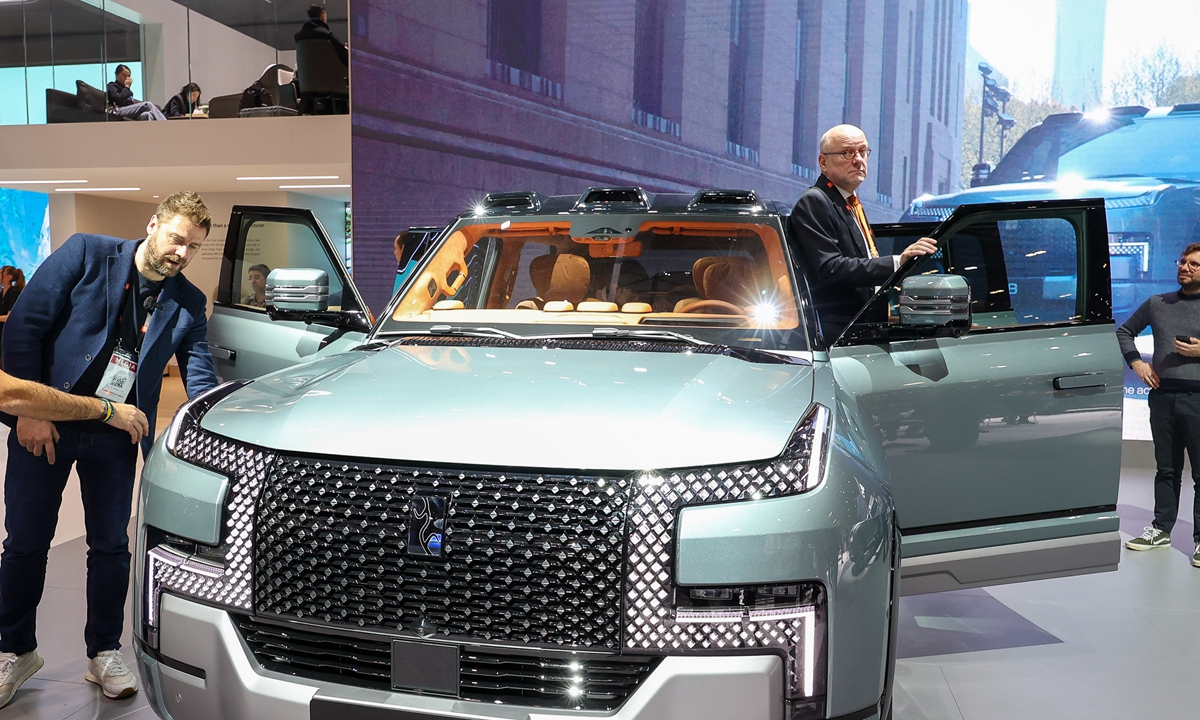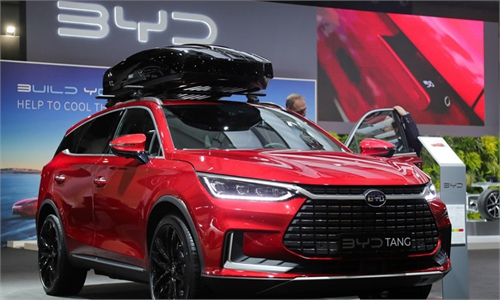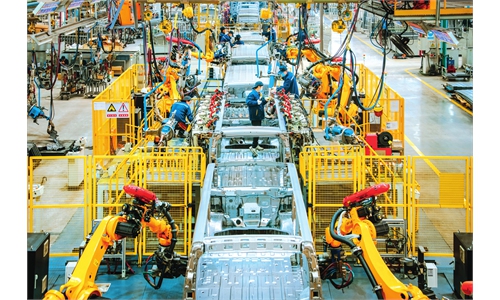Wholesale volumes of new-energy passenger car makers expand in May thanks to trade-in policy

Visitors take a look at the Yangwang U8, a luxury plug-in hybrid sport utility vehicle made by China's BYD, at the Geneva International Motor Show on February 26, 2024. Chinese new-energy car firms are accelerating their overseas expansion. Data from the China Passenger Car Association shows that vehicle exports reached 5.22 million in 2023, a year-on-year increase of 54 percent. Photo: VCG
China’s new-energy passenger car manufacturers sold 910,000 units through wholesale channels in May, up 35 percent year-on-year and 16 percent from a month earlier, data from the China Passenger Car Association (CPCA) showed on Tuesday.
Despite the high base of the same period of the previous year and the holiday factors, the new-energy passenger car market reported relatively strong growth last month , the association said, noting that it was benefitted from the smooth development of the national economy as well as a range of policies including promoting vehicle renewal and trade-in.
According to the CPCA, the market advantage of the new-energy car leaders has continued to expand. Chinese new-energy car maker BYD led the industry, with its wholesale volume reaching 330,488 units. Tesla ranked the second and its wholesale stood at 72,573 units.
Observers said that despite April and May typically being viewed as a period with relatively weak demand, the increasing figures showed that the policies to promote the development of new-energy vehicles (NEVs) has effectively boosted the car market.
China's Ministry of Commerce, Ministry of Finance and five other government departments on April 26 released a detailed plan for auto renewal and trade-in, following the State Council's call in March for large-scale equipment renewals and consumer goods trade-ins.
Boosted by the favorable policies, multiple Chinese NEV enterprises reported an increase in sales during May. BYD sold a total of 331,800 EVs in May this year, surging by 38.13 percent year-on-year, and Chinese auto maker Zeekr delivered a record 18,600 new cars in May, jumping by 115 percent compared with the last year.
Recently, the country has ramped up efforts to roll out multiple incentive policies to further promote large-scale automobile trade-ins, in a bid to accelerate structural optimization in the automobile industry and unleash its vast market potential.
On Monday, the Ministry of Finance announced that it has allocated 6.44 billion yuan ($889.1 million) to local governments for promoting vehicle renewal and trade-ins during 2024.
On May 29, the State Council has also released a decarbonization action plan, unveiling measures to gradually lift restrictions on NEV purchases in various regions.


